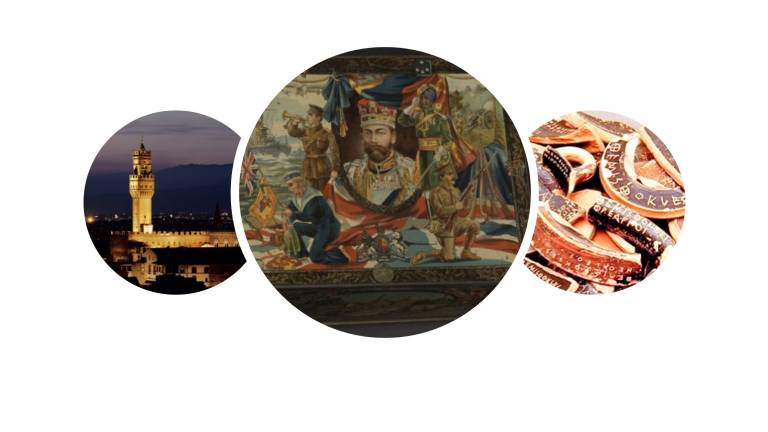Populism and History: Alumni Event
23 May 2023, 6:30 pm–8:30 pm

UCL History invited members of our alumni community, staff and current students to this roundtable discussion on Populism and History. Watch the recording below.
This event is free.
Event Information
Open to
- UCL staff | UCL students | UCL alumni
Availability
- Yes
Cost
- Free
Organiser
-
Queenie Lee
Location
-
Sir Ambrose Fleming LT - G06Roberts BuildingGower StreetLondonWC1E 6BT
Watch the recording of the 2023 event
Professor Hans van Wees: Demagogues and populism in classical Athens
The role of ‘demagogues’ in classical Athenian politics is loudly lamented by Thucydides’ History of the Peloponnesian War and contemporary comic plays such as Aristophanes’ Knights. These authors portray popular leaders such as Cleon (dominant 428-422 BC) as extreme populists making irresponsible promises to ‘the people’ and stirring up paranoid suspicions and hostility towards ‘the elite’. Inevitably, comparisons between Cleon and modern populists, especially Trump, have been drawn in recent years. This talk explores the extent to which Athenian democracy was shaped by populist principles even before Cleon’s ascendancy, notably under the much-admired Pericles, as well as the extent to which Cleon and his fellow-demagogues may be understood as legitimate and effective popular leaders whose reputation as mere rabble-rousers was, to coin a phrase, ‘fake news’.
Dr Patrick Lantschner: Cities and Populism: The Medieval Evidence
The cities of medieval Europe and the Mediterranean world offer an interesting perspective on populism. The famed city-states of Italy have often been celebrated as early experiments of democracy and statecraft. However, the research of the past few years suggests that cities in Italy, and other regions from the Near East to the Iberian peninsula, were also breeding grounds for phenomena that we would now associate with populism. One facet of populism in these cities was the role which political coalitions from outside the corridors of powers played in political life – something that was apparent in the frequent episodes of urban revolt in which city-dwellers from all walks of life challenged and even toppled regimes. The other facet was the rise of strongmen who, often with popular support, rose to power and supplanted many of the established political institutions in cities. The picture that emerges is one that calls into question conventional narratives about the rise of states and the role of cities in this process.
Professor Heather Jones: The British Monarchy in the First World War
During the First World War, the British monarchy was pivotal to the mobilisation of British society. It was portrayed as embodying the values of Britishness for which British people were fighting. It was used to sustain wartime morale and at times the popularity of the monarchy was utilised to support government policies around military recruiting in both Britain and its empire, employing the war disabled and industrial unrest. This talk will consider to what extent the new more charismatic approaches to monarchy that the Palace developed during the war represented a form of populism or an antidote to it. Ultimately, the wartime monarchy feared populism – particularly that represented by David Lloyd George and the Russian Revolution – far more than it embraced it.
The event will take place on Tuesday 23 May 2023 (18:30-19:30) in the Sir Ambrose Fleming LT, G06, Roberts Building and via live stream. There will be a drinks and nibbles provided in the South Cloisters after the event (19:30-20:30).
Register via Eventbrite in the box above to attend in person or virtually.
About the Speakers
Professor Hans van Wees
Lecturer at UCL
Hans has been Grote Professor of Ancient History since 2011, having previously held posts as Lecturer, Reader and Professor since joining UCL History in 1995. His research centres on the archaic period of Greek history (c. 750-450 BC), but also includes the classical period, and is focused above all on developments in society, economy, and warfare.
More about Professor Hans van WeesDr Patrick Lantschner
Lecturer at UCL
Patrick Lantschner works and teaches on Europe and the Islamic world from the Middle Ages into the Renaissance and is especially interested in comparative and transnational approaches. He is interested in societies in which the state is but one of many players. He has worked on internal political conflicts and revolts, with a particular interest in the degree to which conflicts within societies were a departure from, or rooted in, ordinary politics.
More about Dr Patrick LantschnerProfessor Heather Jones
Lecturer at UCL
Heather joined University College London as Professor in Modern and Contemporary European History in 2018, having previously worked at the London School of Economics and Political Science where she was Associate Professor in International History.Heather works on war cultures 1880-1945. Her main research expertise is on the First World War. She is a particular specialist in prisoner of war studies; her first monograph, Violence Against Prisoners of War in the First World War in Britain, France and Germany 1914-1920 was published with Cambridge University Press in 2011.
More about Professor Heather Jones Close
Close

